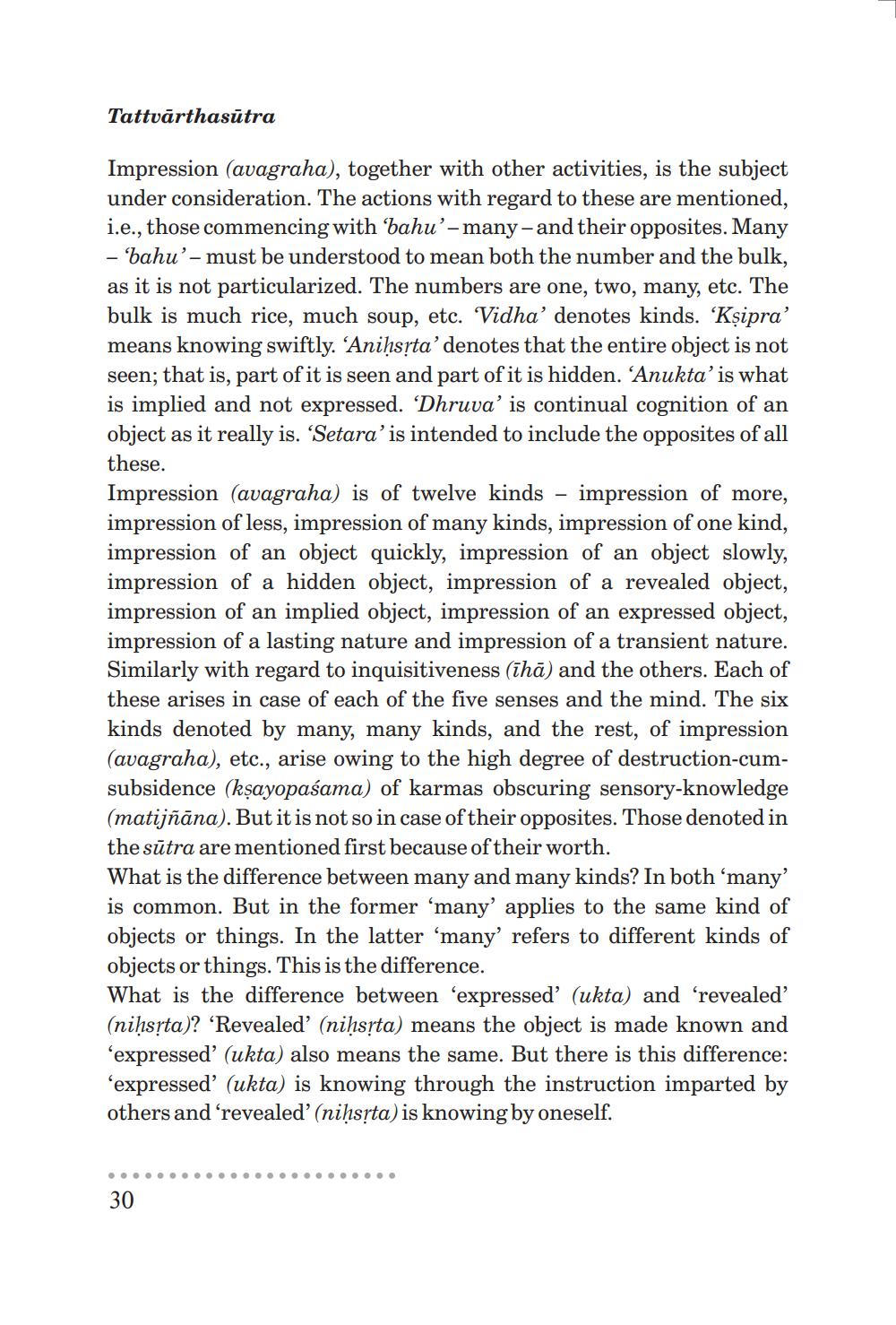________________
Tattvārthasūtra
Impression (avagraha), together with other activities, is the subject under consideration. The actions with regard to these are mentioned, i.e., those commencing with 'bahu'-many- and their opposites. Many - bahu'- must be understood to mean both the number and the bulk, as it is not particularized. The numbers are one, two, many, etc. The bulk is much rice, much soup, etc. Vidha' denotes kinds. Ksipra means knowing swiftly. 'Aniḥsrta'denotes that the entire object is not seen; that is, part of it is seen and part of it is hidden. 'Anukta' is what is implied and not expressed. 'Dhruva' is continual cognition of an object as it really is. 'Setara’ is intended to include the opposites of all these. Impression (avagraha) is of twelve kinds - impression of more, impression of less, impression of many kinds, impression of one kind, impression of an object quickly, impression of an object slowly, impression of a hidden object, impression of a revealed object, impression of an implied object, impression of an expressed object, impression of a lasting nature and impression of a transient nature. Similarly with regard to inquisitiveness (īhā) and the others. Each of these arises in case of each of the five senses and the mind. The six kinds denoted by many, many kinds, and the rest, of impression (avagraha), etc., arise owing to the high degree of destruction-cumsubsidence (kşayopaśama) of karmas obscuring sensory-knowledge (matijñāna). But it is not so in case of their opposites. Those denoted in the sūtra are mentioned first because of their worth. What is the difference between many and many kinds? In both 'many' is common. But in the former 'many applies to the same kind of objects or things. In the latter 'many' refers to different kinds of objects or things. This is the difference. What is the difference between “expressed' (ukta) and 'revealed (niḥsșta)? 'Revealed' (niḥsyta) means the object is made known and 'expressed' (ukta) also means the same. But there is this difference: “expressed' (ukta) is knowing through the instruction imparted by others and revealed' (nihsrta) is knowing by oneself.
30




